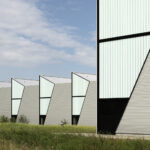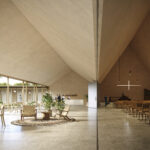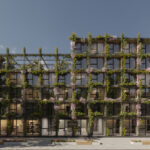Architizer is pleased to announce a partnership with urbanNext, a multi-platform aimed at developing, disseminating and distributing content centered on architecture through a focus on the contemporary human milieu and its challenges. Architizer will feature a weekly discussion from urbanNext’s journals to support its investigation of urban conditions and innovations facing the architectural profession today.
For the inaugural post of Architizer’s collaboration with architecture and urbanism platform urbanNext, Architizer presents a video interview with architect Kunlé Adeyemi, recipient of the Silver Lion award for participant at the 2016 Venice Biennale. Featured as a part of urbanNext’s journal Expanding Design Practices, correspondent Ibai Rigby interviewed the founder and principal of the global firm NLÉ Works in his floating pavilion at this year’s Venice Biennale, which was modeled after the practice’s famed Makoko Floating School in Lagos, Nigeria.
In keeping with the Biennale’s theme established by this year’s curator Alejandro Aravena, ‘Reporting from the Front,’ Adeyemi discusses the need for architects to become “more serving to society,” and “address the needs of the average person,” by engaging with local populations on a personal level.
Kunlé Adeyemi | Taking Bold Steps from urbanNext on Vimeo.
Adeyemi suggests that in decades past, architects had worked in somewhat of a vacuum, a “private sector-oriented profession,” which provided “an opportunity for the profession to experiment and test itself in producing ideas that might not necessarily immediately respond to basic needs.” Given the mass urbanization currently facing cities across the globe, Adeyemi stresses the importance for practicing architects today to think about “not only … satisfying aesthetic desires, but actually tackling real problems.”
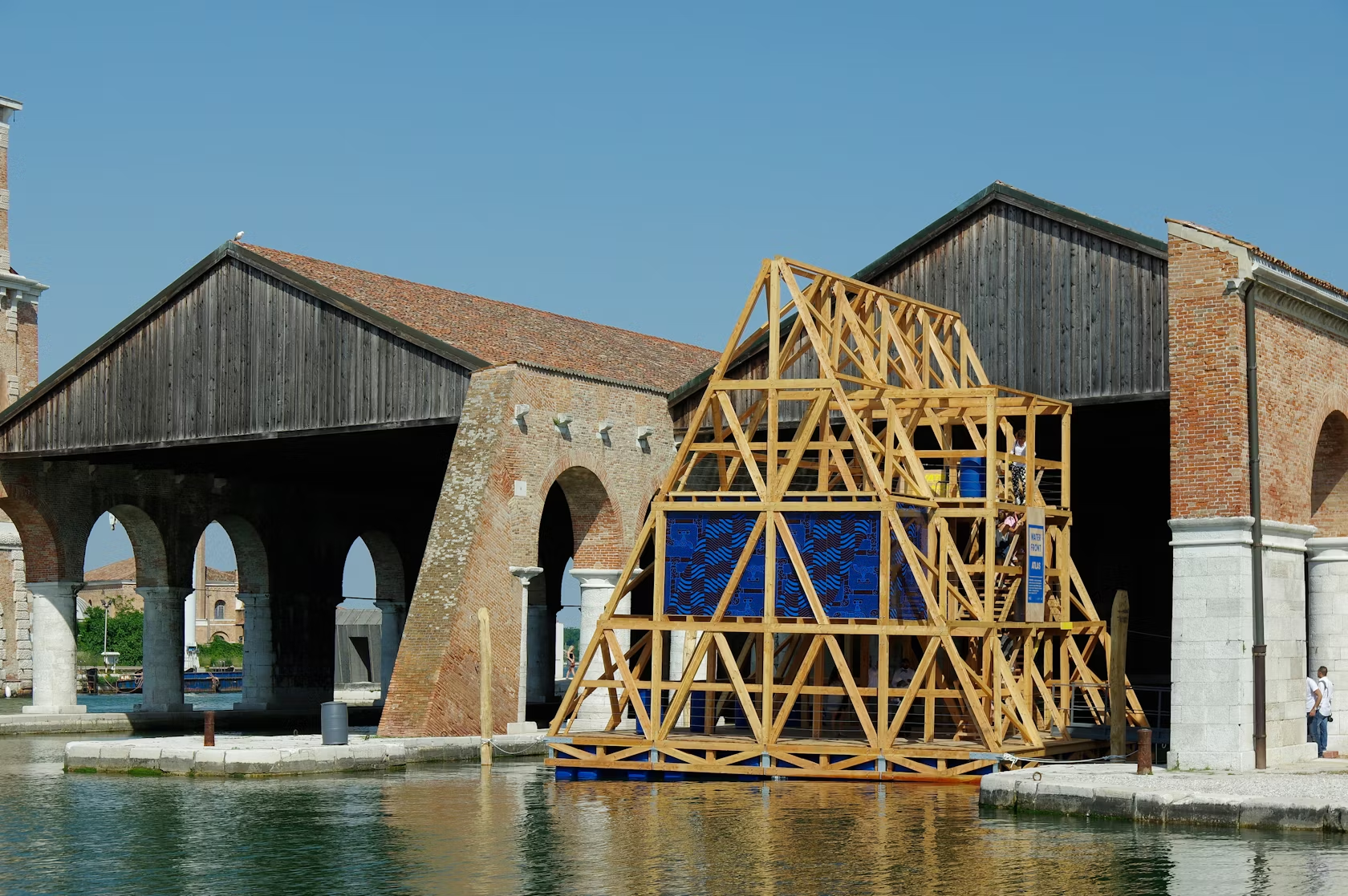
Floating School in Venice by NLÉ. Photograph © Stefan Tuchila
Citing the development of African cities as a particularly rich area for observation for architects responding to global challenges within design, Adeyemi proposes that there is currently “a huge opportunity in simply taking bold steps.”
“It would be great that more african architects can look within their immediate environment to take on some of these very obvious challenges, but also engage the local populations, find innovations within the context,” he asserts.
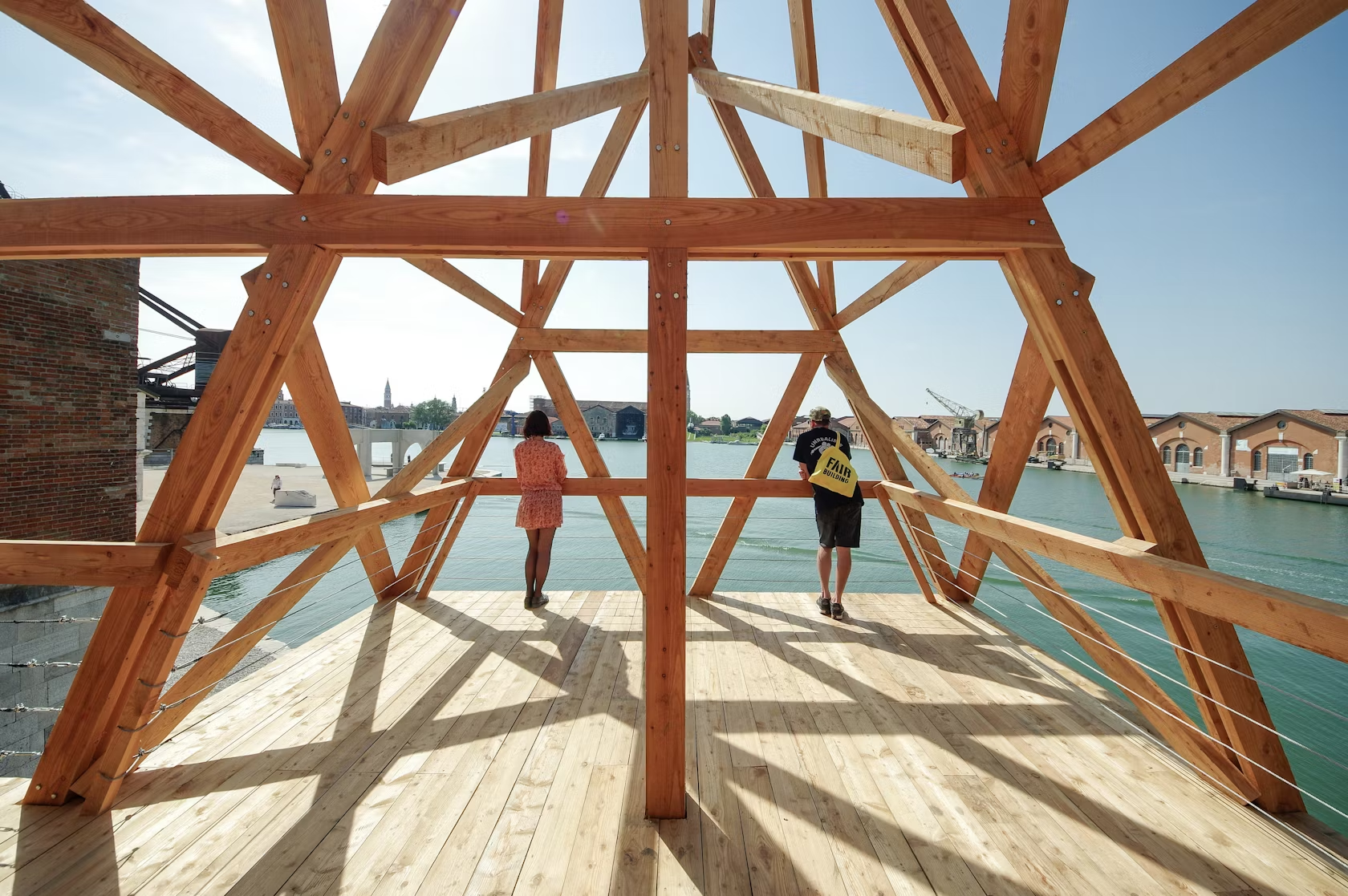
Floating School in Venice by NLÉ. Photograph © Stefan Tuchila
While Adeyemi supports architects and developers learning from global models of development as paradigms for city-making, practitioners must not lose site of local realities: “I think ultimately a very strong combination of local ideas but also global aspirations would be the most ideal.”
Words by Joanna Kloppenburg.
Read more from urbanNext’s journal Expanding Design Practices on the urbanNext website.
In collaboration with:


